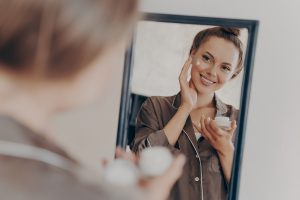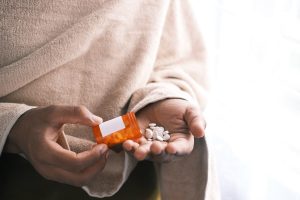Starting a new medication always comes with questions, even if it’s only a few days to treat a short-term problem. Of all the prescriptions doctors in the United States write daily, antibiotic medications are the most common. In 2015, some sources estimated that healthcare professionals wrote 838 antibiotic prescriptions per every 1,000 people in the United States. But, as widely prescribed as antibiotics are, they may interact with foods that are a regular part of your diet. This article will let you know some foods to avoid when taking antibiotics.
How do I know if I need antibiotics?
You can legally obtain antibiotics with a prescription from a licensed doctor. You cannot purchase antibiotics over the counter in the United States. You should only take antibiotics when you have a bacterial infection. Antibiotics won’t work on viral infections, and overuse of antibiotics can lead to the development of infections with antibiotic resistance. Your doctor might also prescribe you antibiotics as a preventative measure before or after surgery to reduce the possibility of an infection at the incision site.
If you suspect you have a bacterial infection, you will need to visit a doctor, urgent care clinic, or emergency room for evaluation. A licensed medical professional can determine whether bacteria are indeed the cause of your infection.
They may also take a culture to determine the type of bacteria causing your condition and prescribe an antibiotic to kill those bacteria. Otherwise, you will be prescribed a broad-spectrum antibiotic that kills many different bacteria.
Foods to avoid when taking antibiotics
Some foods you may eat daily can make your antibiotics work less effectively or irritate your stomach. Therefore, there are foods to avoid when taking antibiotics. Some of these foods you should eliminate from your diet until you have finished your course of antibiotics include:
Grapefruit
There are many medications that you should not eat grapefruit while taking drugs, including most antibiotics. This is because grapefruit juice affects the enzymes in your body that help you metabolize drugs. This can either cause your body to break down the medication too quickly or not quickly enough.
If you metabolize your antibiotics too fast, they don’t have time to attack the bacteria causing your infection before they break down, rendering them useless.
On the other hand, if they metabolize too slowly, they can build up in your bloodstream and lead to toxicity.
Acidic foods
Although not to the same extent as grapefruit, other citrus fruits and acidic foods, including tomatoes, chocolate, and soft drinks, can also interfere with your body’s ability to absorb the medication.
Antibiotics may also cause an upset stomach, which acidic foods can further irritate.
Foods with a lot of calcium
Calcium also blocks the proper absorption of antibiotics in your body. Dairy products have lots of calcium, but they can also be found in leafy greens, added to foods like cereals or orange juice, or taken as a supplement. However, yogurt—a dairy product high in calcium—is a source of probiotics and helps mitigate an upset stomach caused by antibiotics.
Some research suggests that only foods supplemented with high calcium may cause absorption problems, so moderate dairy consumption is usually acceptable.
If you have other health conditions requiring a daily calcium supplement, try taking it at least 3 hours before taking your antibiotics.
Alcohol
In general, you should consume alcohol in moderation, but if you’re taking an antibiotic, it’s best to avoid it altogether. Alcohol by itself can cause dizziness or drowsiness, as can many medications. When these side effects are combined, they may become more intense and seriously impair your ability to function.
They may even affect your heart rate. Both antibiotics and alcohol can upset your stomach and the balance of your gut microbiome.
If you’ve ever used an alcohol-based hand sanitizer, you are probably aware that alcohol also kills bacteria. This includes the good bacteria in your digestive tract that help your intestines work correctly.
Antibiotics, while killing the bacteria that make you sick, can also affect the bacteria in your gut’s microbiome. Consuming both at the same time may worsen these effects and cause severe abdominal pain and diarrhea.
Sugar
Many body parts—like your gut, mouth, skin, and genitals—are a delicate balance of microorganisms. Candida, also called yeast, is a fungus that generally exists in and on your body and usually doesn’t cause any trouble because the helpful bacteria in your microbiome help keep it in check.
However, if Candida is allowed to grow unchecked, it may lead to infections, including vaginal yeast infections, jock itch, athlete’s foot, and thrush in your mouth or throat. While Candida is not the same as the yeast used to make bread light and fluffy, they are alike in that they both feed on sugar.
You become more susceptible to yeast infections when antibiotics kill off the bacteria that usually stabilize your natural Candida levels. Limiting sugar in your diet while taking antibiotics can help prevent Candida overgrowth and reduce your risk of yeast infections.

What can I eat when I am taking antibiotics?
When you are fighting an infection, eating a healthy, balanced diet is essential to give your body the fuel it needs. Soups are easily digestible and packed with protein, vitamins, and other nutrients. Eating foods that support your digestive tract is especially important when taking antibiotics. To counteract the loss of good gut bacteria a broad-spectrum antibiotic might cause, you might consider including a probiotic supplement in your diet while taking antibiotic medication and for a few days after. You can also eat naturally probiotic foods, especially fermented foods like yogurt, sauerkraut, and kimchi.
It is also vital to remain hydrated when sick, especially if you are experiencing diarrhea or vomiting. This is another reason to avoid alcohol, caffeine, and sugary drinks, which may dehydrate you more. Instead, stick with water, decaffeinated tea, and drinks with electrolytes to help replace fluids.
Antibiotics and Drug interactions
Drugs, even helpful ones like medications, affect your body chemistry and change how your body functions. This is a good thing if your body isn’t working correctly on its own, but taking multiple medications at the same time can start to have adverse and sometimes even life-threatening side effects. These can include heart problems, organ damage, digestive upset, or skin problems. In addition, one of your medications may make other medications less effective. For example, certain antibiotics can reduce the effectiveness of hormonal birth control pills. When you are talking with your doctor about starting an antibiotic, make sure you inform them of all other medications you may be using so they can advise you about potential interactions.
Antibiotics and herbal supplements
Many people use herbal supplements to help manage health conditions naturally. However, certain herbal supplements may also interact with medications. Note that herbal supplements are rarely tested for safety or effectiveness in clinical trials and are not under review or oversight by the Food and Drug Administration.
Herbal supplements may cause issues with clotting and bleeding, trigger skin rashes, or prevent certain enzymes in your body from doing their jobs correctly. In the case of liver enzymes that help break down medications in your system, this could increase your toxicity risk. Herbal supplements may also reduce the effectiveness of your medicine or exacerbate potential side effects.
St. John’s wort, for example, is a herbal supplement recommended for some psychological and neurological ailments, including depression, ADHD, and OCD, and applied topically to help accelerate wound healing. It also has hundreds of known drug interactions. St. John’s wort may increase the speed at which your body metabolizes medications, including antibiotics, causing those medications to be less effective.
Always talk to a doctor about your current medications before taking a herbal supplement. If you regularly take herbal supplements and may need to start a new course of drugs, including a short-term course of antibiotics, tell your healthcare provider about all herbal supplements that are part of your routine.
Fiber supplements
Consuming average amounts of dietary fiber when taking antibiotics may help prevent uncomfortable digestive symptoms. However, you should take caution with fiber supplements when taking antibiotics. Fiber does not get digested or absorbed as it passes through your digestive system.
Therefore, suppose there is a lot of fiber in your intestines when you take your antibiotics. The medication may get passed along and excreted from your system with the fiber before your body can fully absorb it. If you have to take fiber supplements to treat other health conditions, try to take these three hours before or three hours after your antibiotics.
If you want to be extra careful, hold off on high-fiber foods until after you’ve finished your course of antibiotics. This is when they will be essential to help restore your normal gut microbiome.
Frequently Asked Questions (FAQs)
Do you still have questions about what you should and shouldn’t eat when taking antibiotics? Here are some answers to frequently asked questions about taking antibiotics with food:
You can take antibiotics on an empty stomach, depending on the specific medication you are taking. Some antibiotics may be absorbed better on an empty stomach, so you’ll want to avoid eating too soon before or after taking them. Other drugs may specify to take with food on the label.
Taking these drugs on an empty stomach may cause further digestive upset. Always follow all directions on the medication bottle. If you have any other questions on how to take your antibiotic, consult with your doctor or pharmacist.
Taking antibiotics can lead to diarrhea, abdominal cramping, and gas. So why do medications that help you feel better sometimes make you feel worse? When we hear “bacteria, we usually think of the germs that can make us sick.
However, many types of “good” bacteria live in the body. These bacteria prevent the “bad” bacteria from growing out of control and help the body digest food. Unfortunately, most antibiotics—especially the ones that doctors frequently prescribe for common infections—kill both “good” and “bad” bacteria. Since many of these good bacteria support our digestive system, killing them off can cause discomfort.
Yogurt is made by fermenting milk. Fermentation is the process of introducing controlled microbial growth to a food product, changing its taste and texture. The microbes cultivated by fermenting milk into yogurt are probiotics, many of which help support the development of the good bacteria that helps our digestive tracks work correctly. Eating yogurt (and other probiotic foods) can help replace the good bacteria that your antibiotics have killed off and reduce digestive discomfort.
Eating probiotic foods is a wonderful way to help ease any stomach discomfort you might experience while taking antibiotics. Any food labeled as containing “live and active cultures” is likely to have helpful probiotics. You might add yogurt, kefir, kimchi, and sauerkraut probiotic foods to your diet.
Avoid foods that may cause further stomach irritation, including spicy foods, greasy foods, and foods with a lot of sugar. Sticking to a blander, easy-to-digest diet might be in your best interest until you finish your course of antibiotics. Soups are a great way to keep variety in your diet and ensure you get vital nutrients without causing further digestive issues.
Finding time to see a doctor when you’re sick can be difficult, especially if you don’t already have a regular provider. Think you might have an infection that requires antibiotics or have questions about potential medication side effects? Set up an online appointment today to get professional medical advice on your schedule from the comfort of your own home.
https://www.livestrong.com/article/455557-foods-to-avoid-when-taking-antibiotics/
https://www.orlandopharmacy.net/what-not-to-eat-while-taking-antibiotics
https://burtsrx.com/foods-to-eat-while-taking-antibiotics/
https://www.healthline.com/nutrition/what-to-eat-antibiotics#TOC_TITLE_HDR_7
https://spoonuniversity.com/lifestyle/stomach-pain-cause-by-antibiotics-how-to-prevent
https://health.clevelandclinic.org/how-to-prevent-diarrhea-while-you-take-antibiotics/
https://www.healthline.com/health/infection/antibiotic-side-effects
https://www.contemporaryclinic.com/view/identifying-important-antibiotic-drug-interactions
https://www.nhs.uk/conditions/antibiotics/interactions/
https://www.nccih.nih.gov/health/tips/tips-how-herbs-can-interact-with-medicines
https://www.drugs.com/slideshow/herb-drug-interactions-1069
https://www.pewtrusts.org/en/research-and-analysis/issue-briefs/2018/08/trends-in-us-antibiotic-use-
https://www.who.int/news-room/fact-sheets/detail/antibiotic-resistance
https://www.indiatimes.com/health/healthyliving/foods-you-should-avoid-if-you-re-on-antibiotics-
https://www.health.harvard.edu/newsletter_article/will-a-fiber-supplement-interfere-with-my-
https://www.stylist.co.uk/fitness-health/nutrition/alcohol-gut-bacteria-hangover/702243
https://www.sciencedaily.com/releases/2016/10/161019173108.htm
https://www.healthline.com/health/yeast-infection-from-antibiotics#_noHeaderPrefixedContent
https://www.cdc.gov/fungal/diseases/candidiasis/index.html#:~:text=Candidiasis%20is%20a%20fungal%





